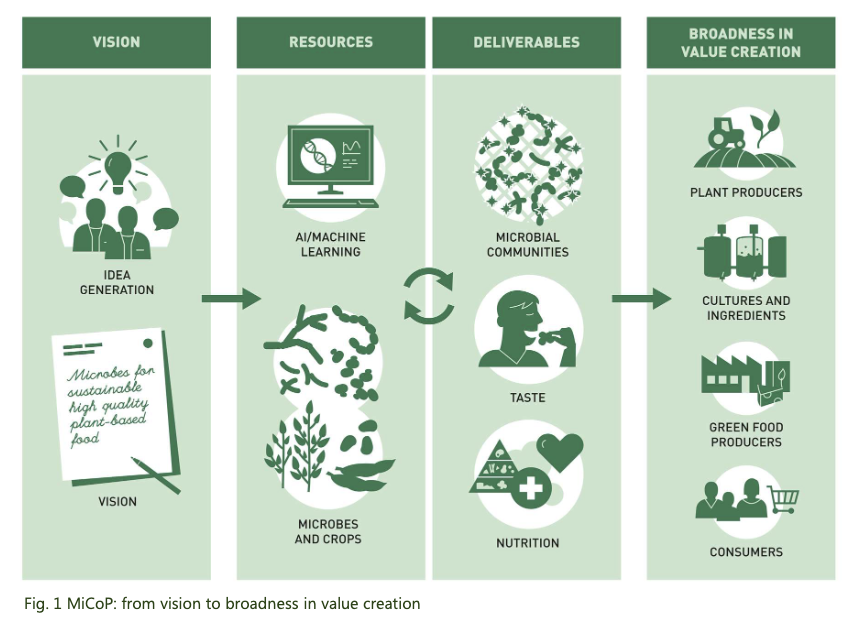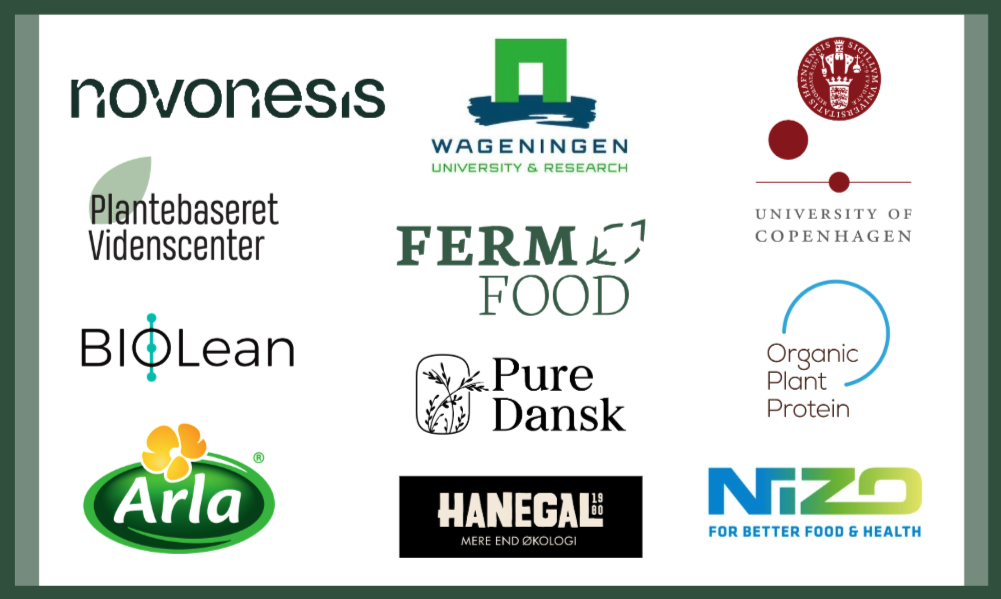MiCoP
"Data-driven design of synergistic microbial communities targeting high-quality plant-based food."
The overall objective of the MiCoP project is to establish a knowledge-based paradigm for constructing synergistic microbial communities tailored for fermentation of plant-based food. Specifically, the project aim to introduce an AI framework powered by machine learning (ML) to design microbial cultures for fermentation of Nordic varieties of pulses. To refine the AI model, knowledge gaps within metabolic pathways, biodiversity, microbial interactions, intrinsic and extrinsic stress factors, and substrate degradation will be addressed.
⌐ The project has been granted 12.506.170 DKK in funding.
⌐ The project starts on 1 February 2024 and will end on 31 December 2027.
Introducing the MiCoP project
Data-driven design of synergistic microbial communities targeting high-quality plant-based food.
The overall objective of the MiCoP project is to establish a knowledge-based paradigm for constructing synergistic microbial communities tailored for fermentation of plant-based food. Specifically, the project aim to introduce an AI framework powered by machine learning (ML) to design microbial cultures for fermentation of Nordic varieties of pulses. To refine the AI model, knowledge gaps within metabolic pathways, biodiversity, microbial interactions, intrinsic and extrinsic stress factors, and substrate degradation will be addressed.
Background for the project
Plant-based food products have limitations in taste and nutritional properties. To address these challenges, fermentation emerges as a gentle and sustainable technological approach. However, fermentation requires microbial cultures tailor-made for a very diverse group of plant-based products. Achieving an enhanced product quality requires comprehensive knowledge to identify microbial Key Performance Indicators (KPIs) being relevant for optimized fermentation performances. Given the diversity and complexity of plant-based substrates a data-driven approach, based on fundamental knowledge within microbial interactions, sensory attributes, and nutritional properties, is needed.
The activities
Mechanistic studies will be conducted to explore microbial interactions related to symbiotic behaviour and/or production of antimicrobials, microbial integration with and degradation of plant-based substrates, inhibition of spoilage microorganisms, flavour formation and degradation of antinutrients. An AI model, based on a supervised ML approach, will be developed to predict optimal synergistic microbial communities. Initially, the model will be built on data from open repositories. Throughout the project the model will be refined with experimental data gathered and new applications within AI will continuously be assessed for model integration. Microbial KPIs will be identified in collaboration with the project partners. Broadness in value creation will be ensured by targeting different industrial sectors and NGOs.
The outcome
An immediately successful output will be a generic AI model to predict required properties and combinations of microorganisms to effectively transform plant-based raw materials into high-quality food products. Fundamental knowledge will be gathered, revealing yet unexplored possibilities for improving palatability, increasing bioavailability of essential nutrients, and enhancing shelf life. The overall outcome will be the added value of fermentation in the transition to a more plant-based diet, thereby fostering innovation and sustainability of the already strong Nordic food culture. The NNF Plant2Food project has the potential to significantly contribute to the realization of several SDGs, particularly in the areas of enhancing good health and well-being (SDG3) and promoting responsible consumption and production (SDG12).


